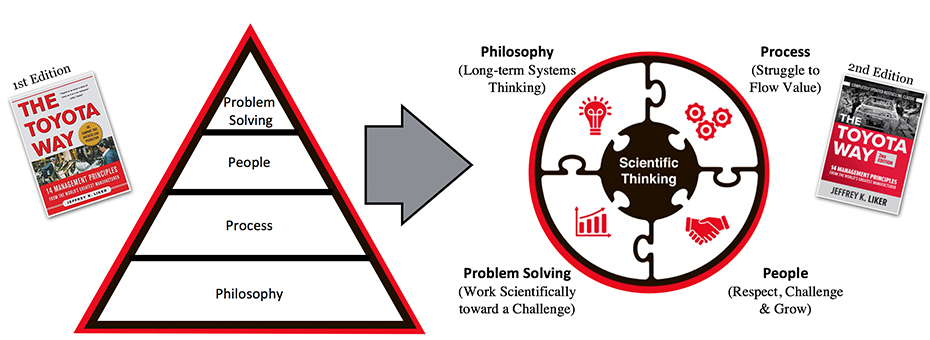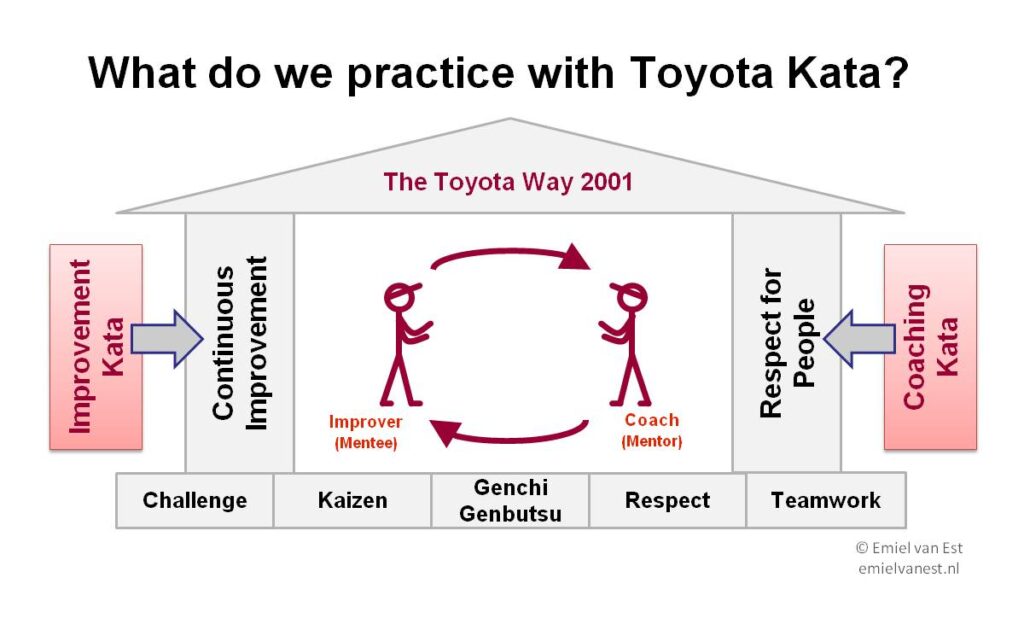Last week Jeffrey Liker wrote an interesting article: The Toyota Way and Toyota Kata: How Do They Fit?
In this article he mentions that he changed the foundational 4P model of The Toyota Way to place scientific thinking in the center.

Initially Jeffrey Liker did not think much of Mike Rothers findings that lead Mike to write Toyota Kata but based on “long discussions with Mike, and some soul searching [] as to where this all fits together” he came to the conclusion that Scientific Thinking plays a central role and consequently made two major changes to the foundational 4P model:
- He turned it into a set of interconnected puzzle pieces as they are all interrelated as a system.
- He put scientific thinking at the center after concluding that all of the principles are more effective with a scientific approach.
Jeffrey Likers book The Toyota Way references The Toyota Way 2001 which is an internal document published by Toyota:
In this booklet we have identified and defined the company’s fundamental DNA, which summarizes the unique and outstanding elements of our company culture and succes.
Introduction of The Toyota Way 2001 by Fujio Cho, President of Toyota Motor Corporation.
In that booklet The Toyota Way 2001 is explained by Two Pillars and Five Keywords. The first pillar is called Continuous Improvement and the second pillar is called Respect for People.

I think it is not a coincidence that The Toyota Way 2001 is explained by two pillars and that Toyota Kata has two kata, two practice routines. A kata for the Improver and a kata for the Coach.
Since 2015 I have been suggesting that with the Improvement Kata we are practicing the fundamentals of Continuous Improvement and with the Coaching Kata we are practicing the fundamentals of Respect for People.
Or, in other words, I think Toyota Kata helps us to start practice “the fundamental DNA and the unique and outstanding elements of Toyota’s culture and succes“.
Whether you resonate with Jeffrey Likers 4P model or you like my suggestion, I think both show the importance of Mike Rothers work.
Toyota Kata helps us to get a better understanding of Toyota’s succes; guides us in replicating that kind of succes and provides key building blocks for a true culture of continuous improvement.